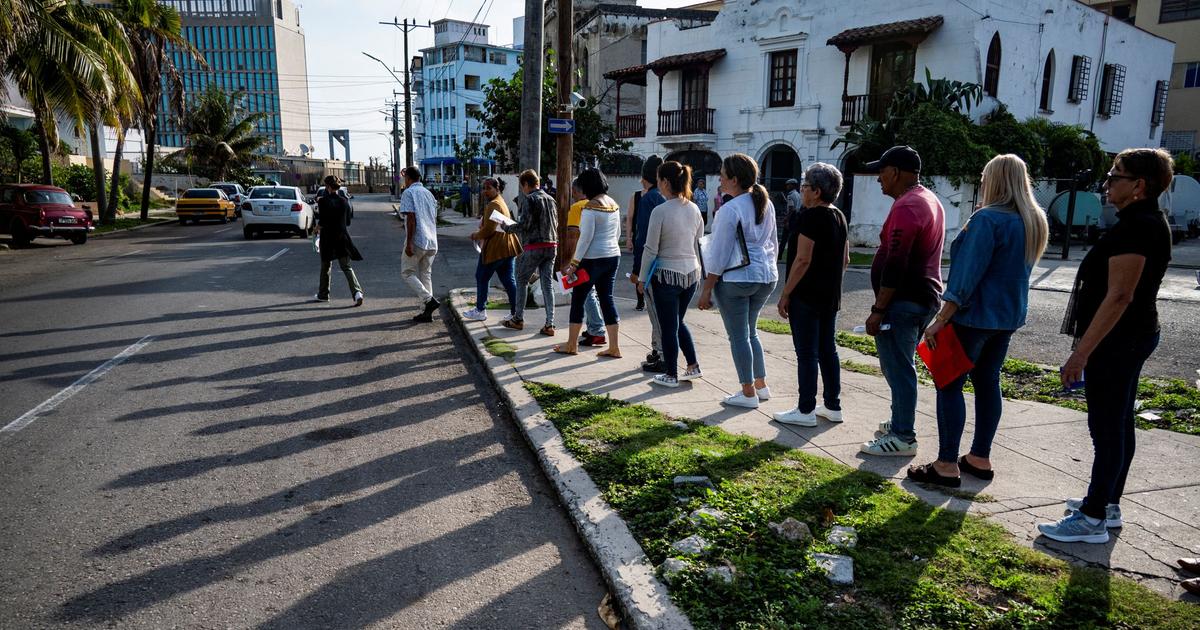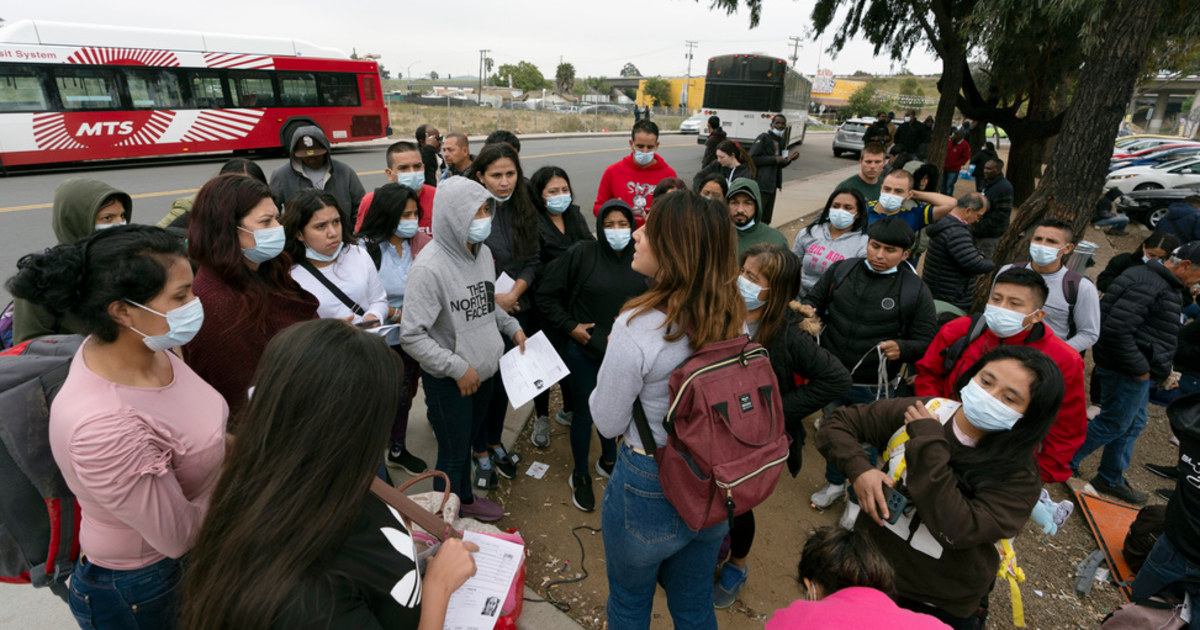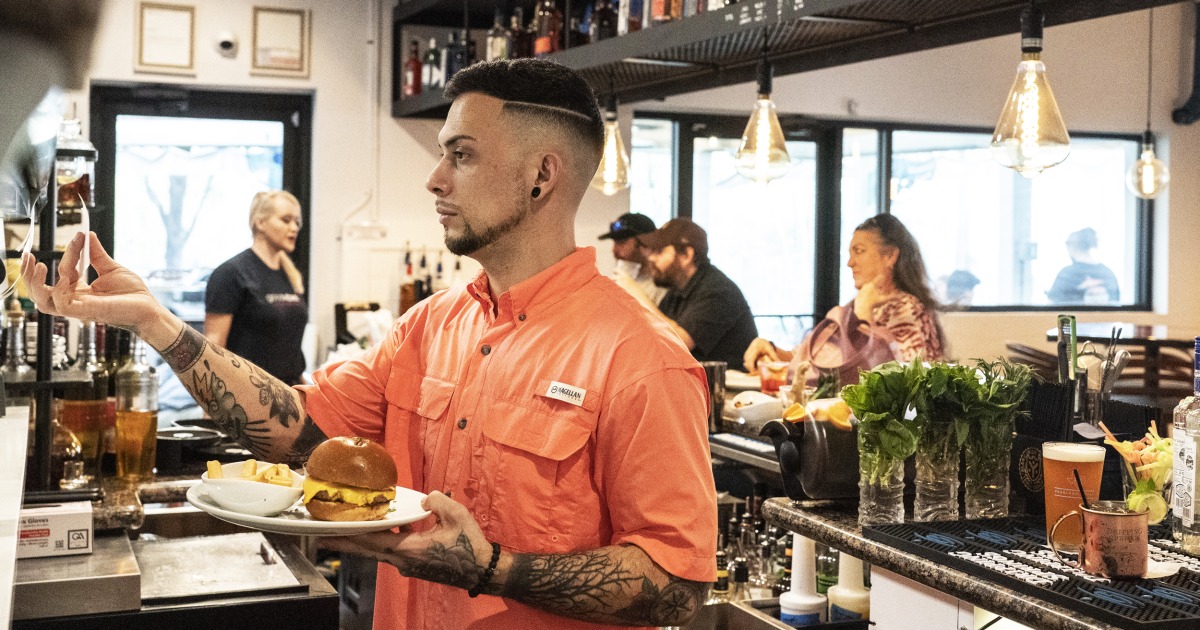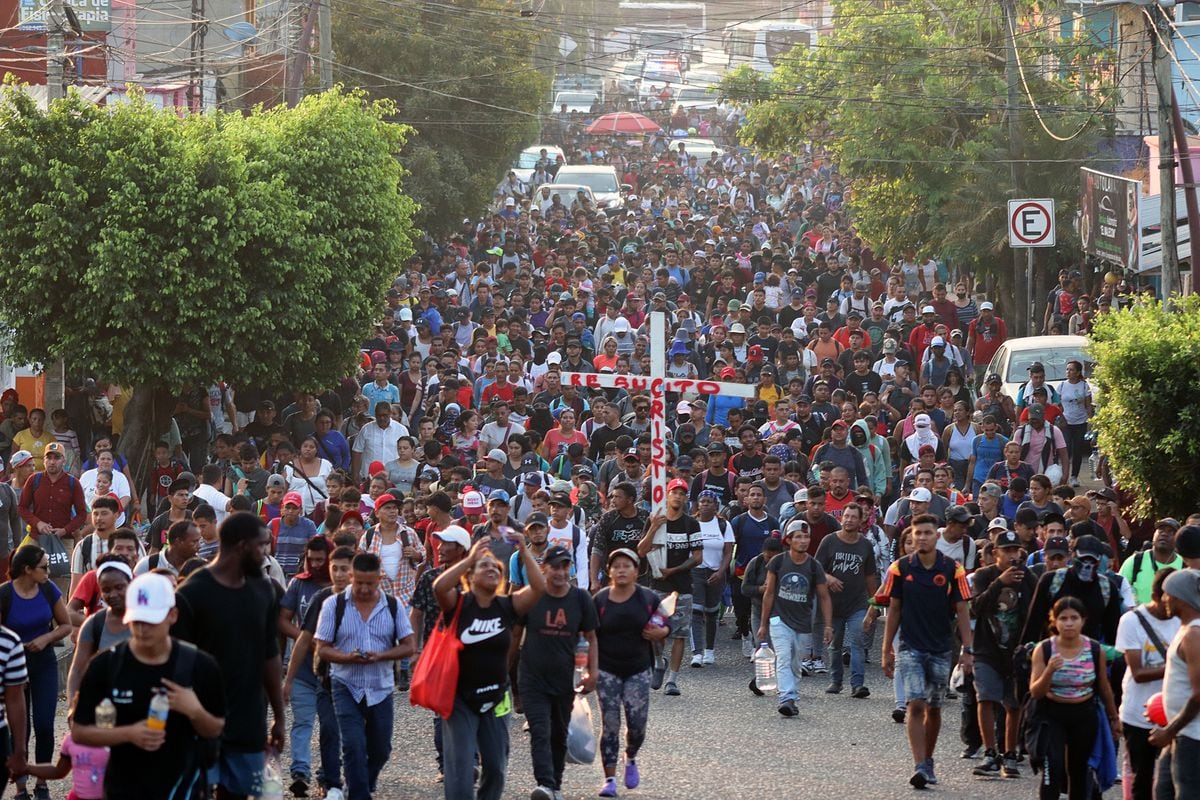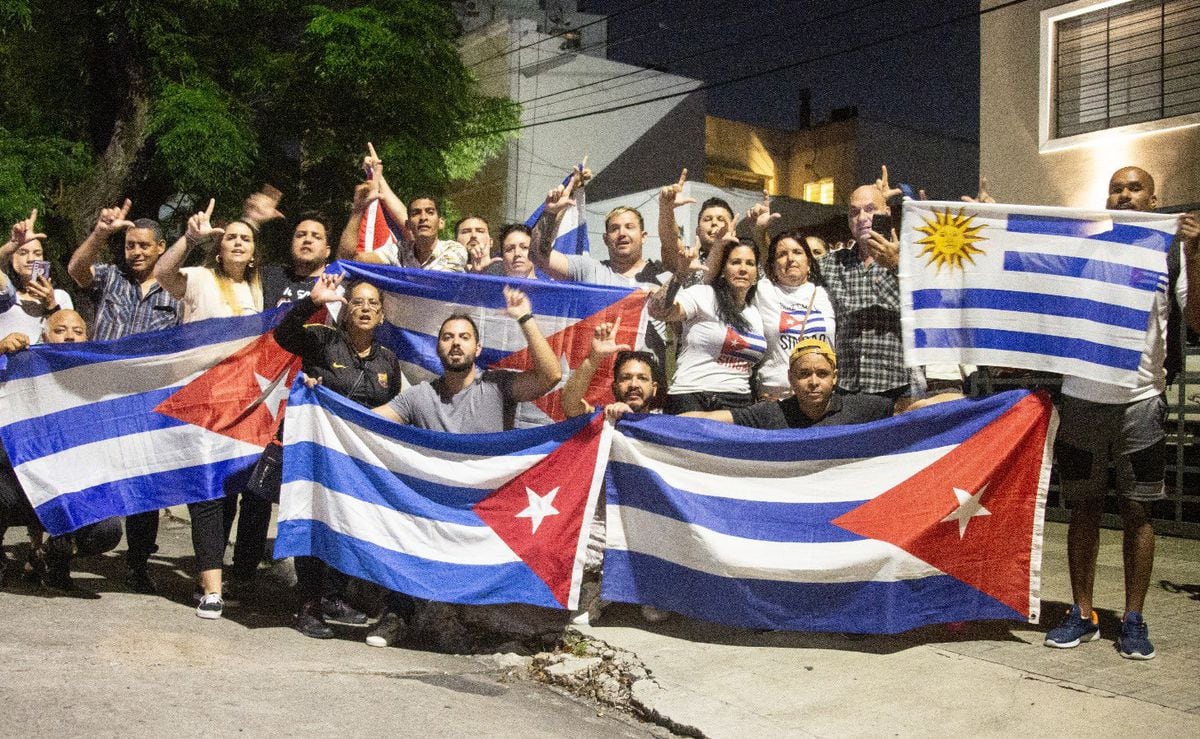The demands of Cubans to the US government. 0:23
Havana, Cuba (CNN) --
As Cuba grapples with its worst food and medicine shortages in decades and runaway inflation, a new exodus of citizens from the island is taking place.
In March, more than 32,000 Cubans arrived at the border between the United States and Mexico, almost twice as many as the previous month, according to data from the United States Customs and Border Protection (CBP).
Deportations of Cubans increased almost 2,400% in 5 years, according to ICE
Desperate to leave Cuba, Claudia, her husband and son managed to obtain visas for Mexico in Havana, the first step in a journey that put them in the hands of criminal smuggling rings known to charge migrants thousands of dollars for safe passage to the US border.
Claudia, who asked that her real name not be used in this report for her safety, said she decided to leave Cuba after widespread protests broke out in July 2021 over power cuts, food shortages and a lack of civil liberties. .
Cuba's government said the protests were orchestrated by Washington to topple the communist government.
Prosecutors have charged more than 700 people with sedition and civil disobedience in the largest mass trials since the start of the Cuban revolution.
advertising
After historic protests, Cubans face mass trials
"I just couldn't take it anymore after July 11," Claudia told CNN.
"I'm leaving for my son, for his future. I've been queuing all day for him to get a yogurt. I work in a [government] hospital for $50 a month. I basically work for free."
Cubans who have just crossed the US-Mexico border crowd around a campfire in Yuma, Arizona, in February.
After pretending to be tourists for two days in Cancun, Mexico, Claudia and her family were told by the Mexican smugglers they came in contact with that they had to fly from Mexico City to Mexicali, a city of more than a million people. located right on the border with the United States.
Claudia said that the small plane to Mexicali was full of fellow Cubans.
She said the smugglers had warned her that Mexican police would stop them upon arrival at the Mexicali airport and put US$100 in each of her passports.
Claudia said Mexican police detained all the Cubans on her flight and on another flight from Guadalajara, carrying mostly Cuban passengers, that arrived at the same time.
The Cubans on the two flights were taken to a nearby police station and the officers kept their passports, he said.
There, she said, the police let her and her family go free, along with the other Cubans who had put a $100 bribe in her passports.
The others remained in detention, she said.
Mexicali police did not respond to a CNN request for comment.
Migrants regularly complain that police in Mexico solicit bribes and rob them.
After leaving police custody, Claudia said the smuggler they had been in contact with picked them up in a car and took them to a house under construction in the Mexican desert.
There, he said a handful of armed smugglers told more than 30 migrants to wait in two stifling rooms until they could attempt the border crossing.
One of the rooms was filled with people from different countries, he said.
"There were Colombians, Bangladeshis, Venezuelans, Nicaraguans, Haitians. It seemed like the whole world was there," he said.
The other room, Claudia said, was full of Cubans.
Cubans collect donated food at a supermarket in Havana in August 2021.
a mass exodus
Cubans have emigrated en masse in waves over the years.
In 1994, some 35,000 Cubans made the perilous journey to the United States on makeshift rafts.
And in 1980, during the "mariel bridge", an estimated 125,000 Cubans fled to the United States in a flotilla of ships.
However, this current exodus looks set to be even larger.
According to CBP data, almost 80,000 Cubans arrived at the US border from Mexico between October and March.
The surge in migration comes at a time when Cuba's government began easing travel restrictions related to COVID-19.
For much of the pandemic, the government kept the island under strict lockdown.
People who wanted to travel often waited months to get a seat on one of the few weekly flights that left.
A blackout in Havana.
As Cuba relaxed restrictions in November, Nicaragua, an ally of the Cuban government, eliminated the visa requirement for Cubans, prompting a wave of people trying to travel to the Central American nation as a way to finally reach the United States.
Suddenly, Cubans began posting online ads selling their homes with "everything in it" to pay for expensive plane tickets.
Others joked with the idea of "going to visit the volcanoes" of Nicaragua, an ironic way of saying that they were going to emigrate to the United States.
Many Cubans flew through Panama to get to Nicaragua, and in March, when the Panamanian government said it would require Cubans traveling through the country to obtain a transit visa, a large crowd of desperate Cubans stormed the Panamanian embassy. In the Habana.
Cubans protest outside the Panamanian embassy in Havana as the country tightens visa requirements in March.
The growing scarcity of basic goods is what is driving many people to leave the island, English teacher Kailen Rodríguez told CNN in April, while waiting outside the Panamanian embassy to obtain a visa.
"We don't have the possibility to buy many things here. There [outside Cuba] we can buy everything," he said.
Critics say the economic crisis and subsequent migration is the fault of the Cuban government, which then uses the wave of migrants to force the United States to the negotiating table.
"Tyrannies cause mass migrations," Senator Marco Rubio (Republican of Florida) said in April.
"It's not just a hostile act, if it gets to a certain level, it's considered an act of war."
Cuban officials say increased sanctions, implemented under the administration of former US President Donald Trump, are contributing to economic turmoil on the island.
"In the case of Cuba, it is not only the consequence of the pandemic, it is the consequences of the reinforcement of the policy of maximum economic pressure from the United States towards Cuba," said the Deputy Minister of Foreign Affairs of Cuba, Josefina Vidal, in an interview with CNN last month.
The United States and Cuba held their first migration talks in four years in April but failed to reach a new deal.
Meanwhile, migrants like Claudia are likely to continue paying criminal organizations to take them on the dangerous and uncertain journey to the United States.
A family from Cuba waits to be transported to a US Border Patrol processing center in December 2021 in Yuma, Arizona.
“I feel liberated”
Claudia said the smugglers left her and the other migrants on a dirt road near the US border in the dark after pointing them out.
The road was littered with garbage and the coats of other migrants who had made the journey before them.
"They told us not to use the lights on our phones and to keep the children quiet," Claudia said.
But the group quickly became disoriented until one of the people in the group, a Colombian, used a map app on his phone to guide them back toward the US border, he said.
US launches campaign for migrants not to pay smugglers when crossing the southern border
Upon reaching the border, Claudia said the group could see lights, a McDonald's, from the Arizona side.
The migrants then came to a hole in the wall where someone had left a box of water and chocolate bars, he said.
Shortly after, CBP agents arrived to transport them to a detention center in Yuma, where they were interviewed, fingerprinted and tested for COVID.
Claudia's son was examined by a pediatrician, she said.
Less than 24 hours later, the family was released after applying for asylum.
They contacted their relatives in Florida, who bought them plane tickets to Miami.
Under the Cuban Adjustment Act of 1996, Cubans who spend a year in the United States can apply for permanent residence.
Claudia says that she is still disoriented by life in the United States, but that her family's dangerous journey was worth it.
"I feel liberated," says Claudia.
"Now I'm a different person, I feel reborn."
Cuban Immigration Exodus

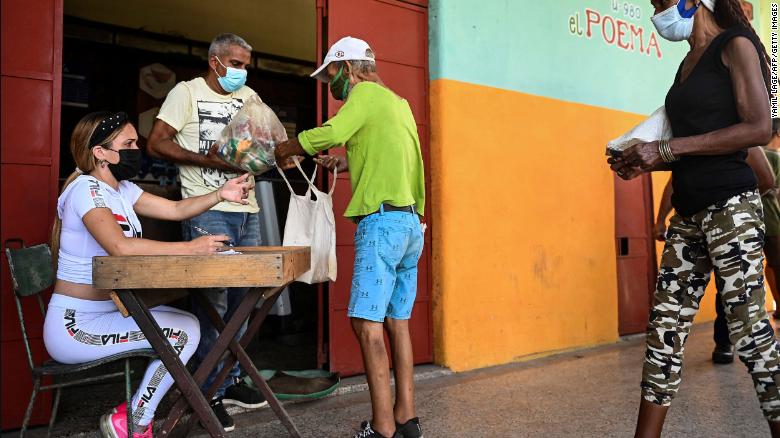
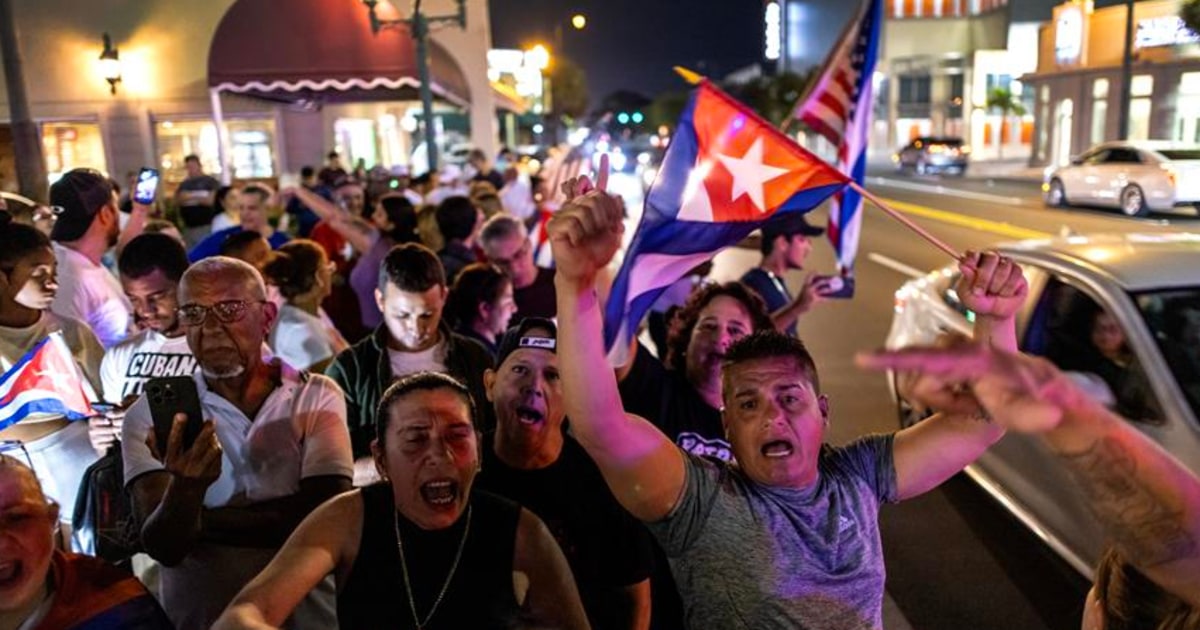
/cloudfront-eu-central-1.images.arcpublishing.com/prisa/MTSQ4Y67KD7UYSQ2QOVVGGYB5I.jpg)
